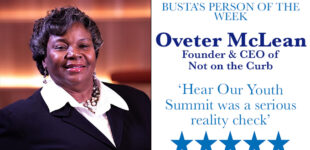Commentary: Learning what makes summer programs effective for middle school students

In above photo: Summer Sun
Tiffany Gueye, Guest Columnist
Editor’s Note: Building Educated Leaders for Life (BELL) will partner with school districts, business and philanthropic groups in four North Carolina cities this summer, including Winston-Salem, to help an estimated 4,500 elementary and middle school students boost their reading and math skills while participating in a camp-like experience.
Summer learning can increase student achievement.
But when it comes to middle school students, how can we continuously improve our approach and produce the greatest return on investment for children, families and schools?
In 2012, a Social Innovation Fund (SIF) grant from the Edna McConnell Clark Foundation and the Corporation for National and Community Service gave my organization, BELL (Building Educated Leaders for Life), an opportunity to conduct a randomized controlled trial and better understand how and why summer learning yields positive student outcomes.
This study was particularly unique and important because little evidence exists about effective learning models for middle school students.
MDRC, the research firm responsible for conducting the evaluation, designed the research to learn more about how summer learning programs can improve the academic achievement of middle school students and to better understand the context in which summer programs are implemented.
The research found the impact of summer learning may be greater on students’ math achievement than on reading achievement.
It also found that it is possible to deliver high-quality programming that middle school students will voluntarily attend at a high rate.
We plugged the findings from the study into our continuous assessment process, along with data collected annually from pre- and post-program formative assessments, teacher & parent surveys, attendance records and quality metrics. Since 2012, we have focused on enhancing three core program elements that are closely tied to strong student outcomes: staff training, curriculum and assessment.
When it comes to training, we have learned to better harness schools’ talent to prepare staff to hit the ground running at the start of the summer.
We also have learned to better harness schools’ talent in customizing training and providing ongoing coaching and support to improve the quality of instruction. By shifting to a “train the trainer” model driven by school and district partners, we have increased the alignment between summer programs and school culture & priorities while creating leadership and professional development opportunities for teachers.
We transitioned to Common Core-aligned reading and math curricula, which incorporate more non-fiction texts and algebraic reasoning.
While it is tough to measure, the benefits of creating extra time and space in the summer for teachers to plan, collaborate and experiment has yielded benefits in terms of increased comfort and familiarity with CCSS standards and assessments, leading to increased quality of instruction.
Another advantage to the new curricula: It’s fully consumable.
Students can bring books and other materials home at the end of the program to read and share with siblings and friends.
The change to consumable curriculum has reduced costs, eliminating the need to manage, transport and store program materials and supplies.
We also learned more about and improved the summer assessment process so that teachers and scholars are in position to succeed.
We began utilizing computer-adaptive assessments aligned with Common Core State Standards to help teachers better use time strategically to teach the skills scholars need most.
These assessments can be administered quickly and easily by deploying iPads and laptops, minimizing the time required for assessment and improving the quality of insight into scholars’ learning needs.
This transition has necessitated strong relationships to utilize schools’ computer labs in the summer and employ mobile solutions to connect schools that lack appropriate technology.
Our recent experience investigating summer learning for middle school students also has sharpened our sense of what else we need to learn. The study was conducted at schools implementing BELL’s model for the first time; now we need to learn more about the impact of well-established programs.
We need evidence from large-scale studies that can yield stronger conclusions.
And we have more to learn about how to best measure student outcomes because academic achievement is only one piece of the puzzle when it comes to raising smart, healthy, confident and determined students.
We’ve increased our focus on socio-emotional learning in addition to building core reading and math skills.
A big part of this is fostering a “growth mindset” that helps scholars learn that despite any challenges they can improve, overcome adversity and take ownership of their success.
That requires an emotional buy-in from middle school students as a precondition for academic progress, so setting a positive tone and culture from Day 1 is a must.
The summer is such a great opportunity to cultivate a can-do mindset as teachers have more time, space and flexibility to support scholars’ individual needs.
We encourage schools, community organizations, donors and partners to continue exploring these questions to gain a deeper understanding of how and why summer learning boosts student achievement.
Every question and every answer will help us better meet the learning needs of adolescents.
Dr. Tiffany Gueye is the chief executive officer of BELL (Building Educated Leaders for Life). She holds a Ph.D. in educational research, evaluation and measurement from Boston College and sits on the board of the Center for Effective Philanthropy.















